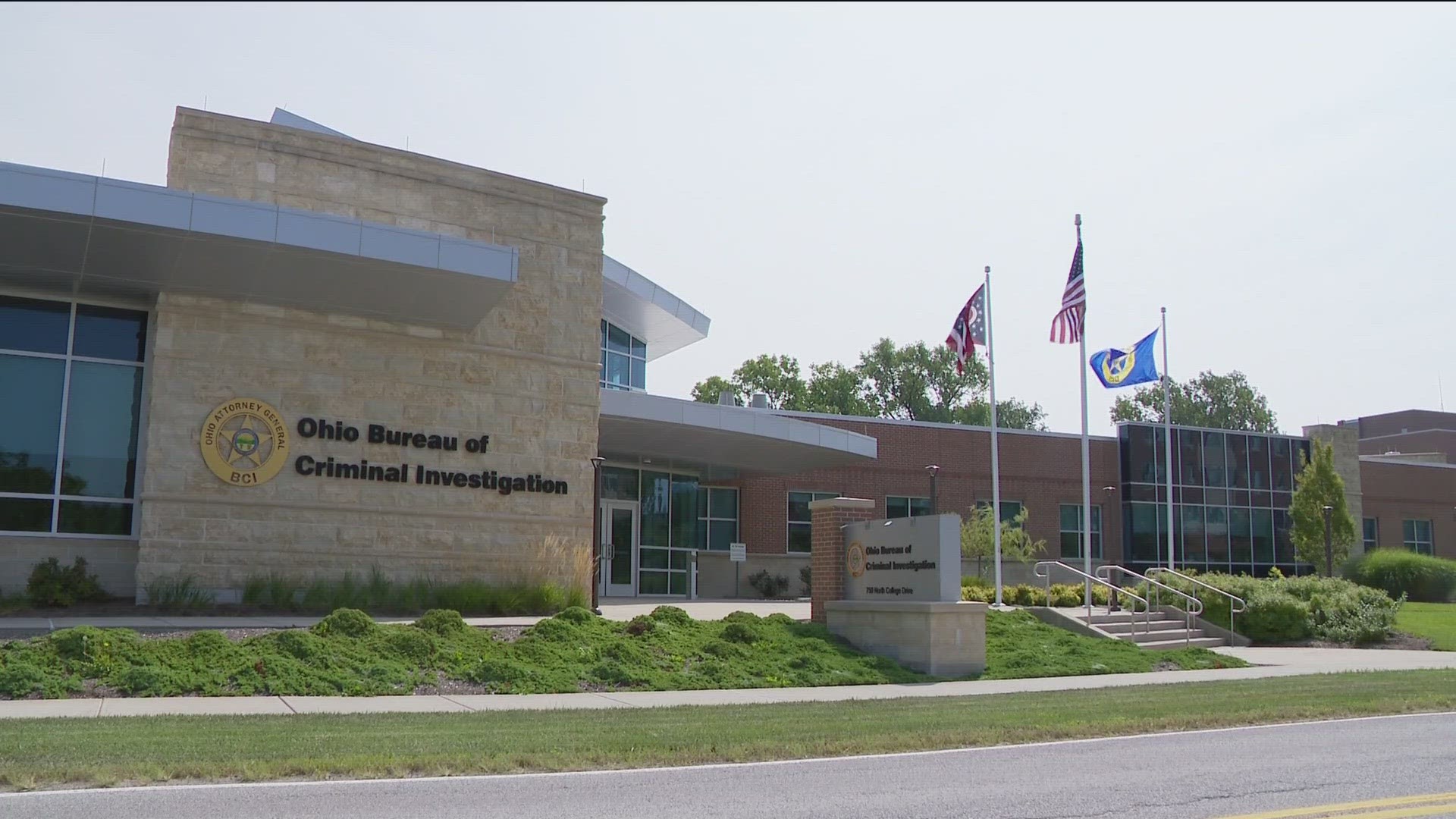TOLEDO, Ohio — Nancy Eagleson, Jane Jordan, Claudia Tinsley, Grace Kennedy, Mark DiStefano.
Those are just some of the cold cases 11 Investigates has featured over the years, and just a fraction of the many unsolved cold cases in Ohio.
The Ohio Bureau of Criminal Investigation is currently working on 160 unsolved cases, according to Special Agent-in-Charge Roger Davis.
With crime labs throughout the state, including in Bowling Green, the BCI assists law enforcement in solving crimes by request.
11 Investigates visited the crime lab in Bowling Green where technicians are working on cases involving firearms using National Integrated Ballistic Information Network (NIBIN) technology.
The ballistic-imaging tool allows technicians to compare fired cartridge cases collected as evidence to link crimes involving the same gun. Much like how humans have unique fingerprints, guns leave unique marks on cartridges.
That means BCI can now identify what gun shot what cartridges. It's a far more advanced use of technology than identifying only the model of the weapon from which a bullet was fired.
NIBIN creates and compares digital images of the cartridges against the Bureau of Alcohol, Tobacco, Firearms and Explosives' (ATF) database of existing images of fired cartridges. Law enforcement is notified if there is a match.
The program operates similarly to the Combined DNA Index System (CODIS), in which DNA collected as evidence is compared to that of known offenders already in the system.
BCI uses a team approach. Each investigator specializes in one aspect of solving crimes, such as touch, genealogy and familial DNA, and the ability to connect criminals or victims using DNA from family members.
Technology DNA is information extracted from cell phones, GPS and computer searches.
Ohio Attorney General Dave Yost said many local law enforcement agencies across the state do not have the funds to purchase the expensive technology to perform tests and examinations, nor the staff to examine the evidence in current or cold cases. They may reach out to BCI to assist.
"What happens if you're a midsized department, a place that maybe struggles a little bit for resources? You're too busy trying to keep up with the day-to-day mayhem," Yost said. "What BCI's able to do if you have a murder case, a rape case that's been sitting out there, we can come in and provide that scale and expensive tools to do some of these things."
Special Agent-in-Charge Roger Davis said modern technology is the key to moving cold cases forward.
"We are reviewing each and every piece of item of evidence from that case," he said. "We're going to look at what can be done to that. Is it something that additional testing can be done to that item? How long ago was testing done to that item? And then obviously we're going to look at some of the advanced DNA technologies such as familial DNA or genetic genealogy."
The technology, he said, is providing answers to cases 10, 15 and 20 years old. He credits the investigators who collected the evidence even before modern technology existed.
When that technology is able to identify a DNA sample or from which gun a bullet was fired, Davis said it's an indescribable feeling.
"The biggest part is knowing we're going to be able to give answers to a victim's family."

